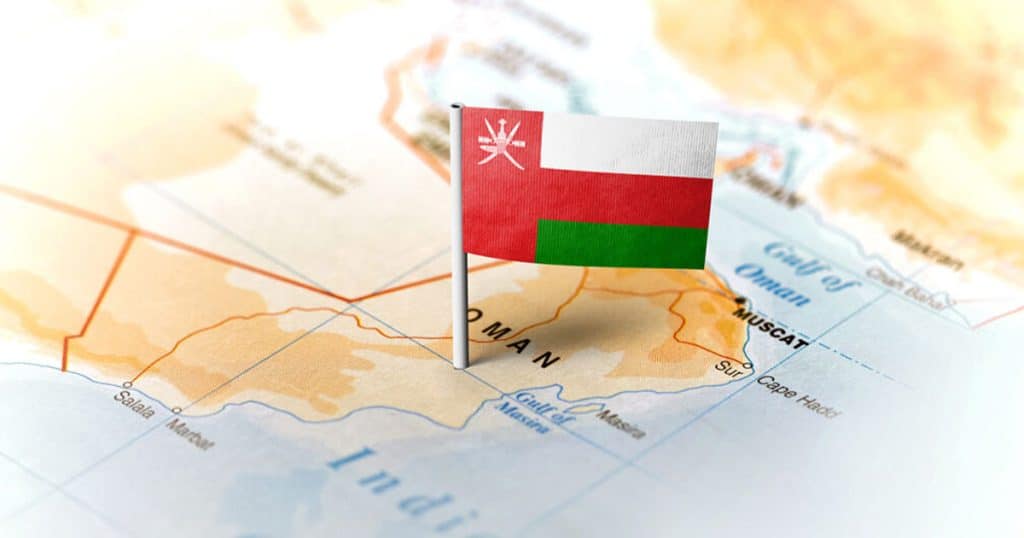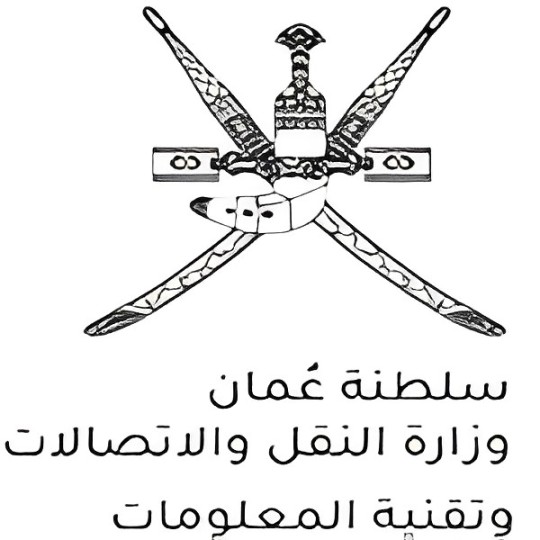+968 9596 3381
Phone Number
[email protected]
Email Address
Mon - Thu: 8:00 - 5:00
Online store always open
Phone Number
Email Address
Online store always open
WhatsApp Us Today
Drop Us an Email Today
Google Map Location
Saturday to Thursday

Introduction: Why Employment Contracts Matter in Oman
Overview of Oman’s Labor Law and Legal Framework
Types of Employment Contracts in Oman
Fixed-term vs. Indefinite
Part-time, Temporary, and Seasonal Contracts
Mandatory Provisions Required by Law
Employee Rights and Employer Obligations
Key Clauses Every Employment Contract Must Have
Non-Mandatory but Recommended Provisions
Special Considerations for Expatriate Employees
Termination Clauses and End-of-Service Benefits
Working Hours, Leave Policies, and Overtime Rules
Health Insurance, Safety, and Welfare Provisions
Dispute Resolution Mechanisms in Employment Contracts
Drafting Employment Contracts: Step-by-Step Guide
Common Mistakes Employers Make—and How to Avoid Them
Industry-Specific Employment Provisions (Construction, Oil & Gas, Services)
Role of Ministry of Labor in Contract Oversight
Recent Reforms Impacting Employment Contracts in Oman
Case Studies: Contract Disputes and Lessons Learned
Checklist for Employers: Employment Contract Compliance
The Future of Employment Contracts in Oman
Conclusion
FAQs
Employment contracts form the foundation of the employer–employee relationship in Oman. They are not just administrative paperwork but legally binding documents that define responsibilities, rights, and expectations on both sides. For businesses—whether large multinational corporations or newly formed SMEs—drafting contracts that comply with Oman’s Labor Law (Royal Decree 35/2003, as amended) is critical.
Failure to draft compliant contracts can expose employers to fines, labor disputes, and even reputational damage. Employees also rely on these contracts for clarity on wages, benefits, leave, and termination conditions. In Oman’s rapidly evolving business environment—where government reforms, Omanization policies, and increasing foreign investment shape the labor market—employment contracts are a vital tool for compliance, transparency, and workforce stability.
For investors and new companies entering Oman, understanding the mandatory provisions is the first step to ensuring contracts are enforceable and aligned with local law. This guide breaks down the legal framework, required clauses, and best practices for drafting compliant agreements.
Employment relationships in Oman are governed primarily by the Labor Law (Royal Decree 35/2003), with several amendments that modernized provisions on working conditions, leave, wages, and dispute resolution. The Ministry of Labor enforces the law, monitors compliance, and acts as the mediator in disputes.
Key highlights of the framework include:
Employment contract requirement: All employment must be governed by a written contract.
Language: Contracts must be in Arabic. A bilingual version can be used, but the Arabic text prevails in case of disputes.
Registration: Contracts must be registered with the Ministry of Labor.
Mandatory content: Specific clauses (salary, working hours, leave, termination terms, etc.) must be included.
Labor disputes: Handled through Ministry mediation and, if unresolved, labor courts.
In addition, Oman is implementing Vision 2040 reforms, which increasingly tie workforce development and employment practices to national goals like localization (Omanization) and sector diversification. Thus, contracts are also a reflection of compliance with national workforce policies.
Businesses must carefully choose the right type of employment contract depending on the role, project length, and business needs. The Labor Law recognizes several structures:
Used when employment is for a specific period (e.g., one year).
Common in construction, oil & gas, or project-based industries.
If the contract is renewed more than once, it may be deemed an indefinite-term contract.
No set expiry date; employment continues until terminated by either party.
More common for permanent staff roles, especially in services and administration.
Allowed under Oman’s labor framework.
Useful for consultants, students, or professionals engaged in multiple roles.
Must specify working hours and entitlements proportionally.
Designed for short-term tasks (e.g., seasonal tourism, retail, or agriculture).
Entitlements such as leave and benefits are adjusted accordingly.
Employers must ensure the chosen type aligns with both business requirements and legal entitlements.
Every employment contract in Oman must include specific clauses. These are non-negotiable, as per Labor Law, and omitting them risks invalidation or penalties. Below is a breakdown:
| Mandatory Provision | Details Required |
|---|---|
| Employer & Employee Information | Names, addresses, identification numbers, commercial registration details |
| Job Title & Duties | Clear description of role, responsibilities, and work location |
| Contract Duration | Fixed-term or indefinite; specify start and end dates if applicable |
| Probation Period | Up to 3 months (extendable to 6 for technical roles) |
| Working Hours | Standard: 45 hours/week, 9 hours/day max (with exceptions during Ramadan) |
| Wages/Salary | Basic salary, allowances, payment method, frequency (monthly, etc.) |
| Leave Entitlements | Annual leave (30 days), sick leave, public holidays |
| End-of-Service Benefits | Severance pay as per law for expatriates |
| Termination Conditions | Notice period (30 days), grounds for termination, employee resignation terms |
| Dispute Resolution | Mechanism, usually via Ministry of Labor or labor courts |
Key note: All contracts must be in Arabic or accompanied by an Arabic version. The Arabic version takes precedence in disputes.
Beyond mandatory provisions, employment contracts must reflect Oman’s labor rights framework. These include:
Non-discrimination: Employers must ensure equal treatment irrespective of nationality, gender, or religion.
Wages: Employers must pay salaries through the Wage Protection System (WPS) into employee bank accounts.
Overtime pay: Employees are entitled to overtime pay at higher rates if working beyond standard hours.
Leave entitlements: Paid annual leave (30 days), maternity leave (50 days), sick leave, and public holidays.
End-of-service benefits: Expatriates are entitled to gratuity (based on years of service).
Safe working environment: Employers must ensure workplace safety and health.
On the flip side, employees must:
Perform duties as per contract.
Follow company policies and codes of conduct.
Respect confidentiality clauses.
These rights and obligations are non-waivable; employers cannot bypass them even with employee consent.
While Oman’s Labor Law specifies mandatory provisions, businesses are encouraged to add additional clauses that protect both parties and reduce future disputes. Strong, well-drafted clauses help employers set clear expectations while safeguarding employees’ rights.
Some key clauses include:
Confidentiality & Non-Disclosure Clauses
To protect sensitive company information, trade secrets, or client databases. Especially important in IT, consulting, and finance.
Non-Compete Clauses
Restricts employees from working for competitors within a specified period after termination. Must be reasonable in scope, duration, and geography to be enforceable.
Intellectual Property (IP) Ownership
Clarifies that any work created during employment (software, designs, inventions) belongs to the employer.
Performance & Evaluation
Clear metrics or KPIs for measuring employee performance. Helps during promotions or disputes over poor performance.
Disciplinary Procedures
Outlines how misconduct will be handled, including warnings and termination triggers.
Training & Development Commitments
Especially in technical sectors, contracts may include training support while ensuring employees remain with the company for a set period afterward.
Inserting these clauses not only strengthens compliance but also aligns the contract with business needs.
While not legally required, certain provisions can improve clarity and employee satisfaction. These include:
Probation Extension Terms: If extended beyond 3 months (up to 6 months for technical jobs), this should be explicitly stated.
Relocation & Travel Allowances: Especially relevant for expatriate employees.
Health Insurance & Benefits: While not mandatory for all industries, many employers provide it as part of a competitive package.
Remote Work & Flexible Arrangements: Post-pandemic, many businesses adopt hybrid models—these terms should be spelled out.
Bonus & Incentive Structures: If performance-linked, details should be clear to avoid disputes.
Dispute Resolution Mechanism: Arbitration or mediation options before approaching labor courts.
Employers that include these provisions often see higher retention rates and reduced conflicts.
A large percentage of Oman’s workforce is expatriate, especially in sectors like construction, oil & gas, hospitality, and retail. However, Oman’s Omanization policy requires companies to hire a specific quota of Omani nationals depending on industry.
Key rules for expatriate employment contracts:
Work Visa & Labor Card: Employment contracts for expatriates must be tied to valid visas and labor cards.
Contract Registration: Must be approved by the Ministry of Labor.
End-of-Service Benefits: Expatriates are entitled to gratuity (15 days’ pay per year for first 3 years; 30 days’ pay thereafter).
Family Benefits: Some contracts may include family visa sponsorship, housing allowances, or education benefits for dependents.
Omanization impact:
Contracts for expatriates must not conflict with Omanization quotas.
Certain roles are restricted to Omani nationals only.
Employers may face fines for non-compliance.
Thus, expatriate contracts must be drafted carefully to ensure visa compliance, fair treatment, and alignment with Omanization policies.
Termination is one of the most sensitive areas in employment contracts. Oman’s Labor Law provides strict rules to protect employees from arbitrary dismissal.
Standard: 30 days notice for both employer and employee.
If not provided, compensation equal to salary of notice period must be paid.
Misconduct (theft, disclosure of trade secrets, falsification of documents).
Repeated absenteeism.
Non-performance despite warnings.
Redundancy due to restructuring (must be proven genuine).
Employer breaches contract.
Employer fails to pay wages for more than a month.
Unsafe working conditions not addressed.
Expat employees entitled to end-of-service gratuity unless terminated for gross misconduct.
Omani nationals are covered by the Social Insurance Law for pension benefits.
Employers must ensure termination clauses are fair, legally compliant, and clearly documented to avoid costly disputes.
Oman’s labor law provides strict guidelines on working hours and leave entitlements, all of which must be reflected in employment contracts.
Standard: 45 hours/week, 9 hours/day.
Ramadan: Maximum of 6 hours/day for Muslim employees.
Employees are entitled to at least 30 minutes of rest after 5 consecutive hours of work.
Annual Leave: 30 days of paid leave per year.
Public Holidays: Paid leave on official national/religious holidays.
Sick Leave: Up to 10 weeks (paid in decreasing percentage: 100%, 75%, 50%).
Maternity Leave: 50 days fully paid.
Emergency Leave: Short-term leave in urgent circumstances (as per law or company policy).
Overtime must be compensated at 125% (weekdays) or 150% (weekends/holidays) of the normal wage.
Overtime limits must also be observed to protect employees’ health.
By clearly stating these entitlements in contracts, employers avoid ambiguity and build trust with employees.









Let us handle your company registration, office setup, and licensing to ensure a seamless process.


At setupinoman, we specialize in assisting businesses with establishing their presence in Oman. Our services include:
Business Registration & Licensing – Handling all MoCIIP applications and approvals.
Legal Documentation & Compliance – Ensuring smooth document translations and notarization.
Banking & Office Setup – Helping businesses secure bank accounts and office leases.
Visa & Employee Services – Managing work permits and Omanization requirements.
What is the minimum investment required to qualify for a residency visa in Oman?
The minimum investment typically starts from OMR 20,000 for standard investor visas. However, the Golden Visa program requires investments starting from OMR 250,000.
Can I own 100% of my business in Oman as a foreign investor?
Yes, Oman allows 100% foreign ownership in most sectors, especially under the Foreign Capital Investment Law. Some regulated sectors may require local participation.
Is real estate investment enough to obtain a residency visa in Oman?
Yes, under the Golden Visa category, purchasing property worth at least OMR 250,000 can qualify you for long-term residency.
What is the difference between the Golden Visa and the Standard Investor Visa?
Golden Visas offer longer residency terms (5–10 years), faster processing, and broader eligibility, while Standard Investor Visas require lower investment but shorter duration and renewals.
How long does the investor visa process take?
On average, it takes 4 to 8 weeks, depending on security clearance, company registration, and documentation accuracy.
Can I apply for residency before launching my business?
You must complete company registration and capital deposit before applying for the residency visa under the business investor category.
Is it necessary to open a corporate bank account in Oman for this process?
Yes, you need to deposit the minimum share capital into a corporate account to receive the capital deposit certificate, which is essential for visa processing.
Are there any age or nationality restrictions for investor visas?
There are no age restrictions, and citizens from most countries are eligible, although background checks and financial verification are required.
Do I need a physical office in Oman for my business registration?
Yes, a registered office address is mandatory — this can be a virtual office, shared workspace, or physical premises, depending on your business type.
What types of businesses are best for investment-based residency?
Tourism, tech, healthcare, logistics, real estate development, and manufacturing are some of the most attractive sectors for foreign investors.
Is free zone investment also eligible for residency visas?
Yes, businesses established in Oman’s free zones like Duqm or Salalah can qualify, though some limitations apply based on visa type and activity scope.
Can I bring my family with me under an investor visa?
Yes, investor visa holders can sponsor family members including spouse and children, subject to documentation and proof of income.
What are the key documents required for an investor visa application?
Passport copies, security clearance, MOA, business license, capital deposit certificate, tenancy contract, and recent photographs are commonly required.
Do I need to hire local employees?
While not mandatory in all cases, certain sectors may require a minimum Omanization rate to qualify for full operational licensing and staff visa issuance.
What happens if I close my company after receiving the residency visa?
Your visa may be cancelled unless you transfer your sponsorship or obtain a different qualifying residency basis (e.g., real estate or employment).
How long is the investor visa valid?
Standard visas are issued for 2–5 years and renewable; Golden Visas are valid for 5 or 10 years, depending on the investment category.
Can I operate multiple businesses under one investor visa?
Yes, but you must ensure each entity is properly registered, and you hold a qualifying ownership percentage in each.
Are there any tax advantages for foreign investors?
Oman offers no personal income tax and competitive corporate tax rates (15%). Free zones also offer tax holidays for up to 10 years.
Can I change business activities after obtaining a visa?
Yes, but you must update your commercial registration and possibly re-obtain approvals or licenses depending on the new activity.
Is a local sponsor required for mainland businesses?
Not anymore in most sectors. Since the law change in 2020, most businesses can be 100% foreign-owned without requiring a local partner.
How do I maintain my visa status if I spend time abroad?
Investor visas typically allow you to spend time abroad, but extended absence (6+ months) may affect renewal or validity, unless explained.
Are digital or online businesses eligible?
Yes, tech and e-commerce businesses are highly encouraged and eligible for both investor and long-term residency options.
Do I need to show ongoing revenue to maintain the visa?
Not always, but inactivity or lack of compliance may risk rejection during renewal. Annual filings and proof of operation are recommended.
Can I apply for residency through an existing business I acquire?
Yes, provided you meet ownership thresholds and the business is compliant with all legal, tax, and licensing requirements.
What is the role of the Oman Investment Authority in this process?
OIA supports large-scale strategic investments, especially in sectors aligned with Vision 2040. Smaller businesses work mainly with MOCIIP and ROP.
Is the visa tied to one company or can I invest in multiple?
You can invest in multiple companies, but your primary residency visa will be tied to the company where you have majority stake or initial approval.
Do I need health insurance for the investor visa?
Yes, valid health insurance is a prerequisite during visa application and renewal processes.
How much capital is required for the Golden Visa through real estate?
You must invest at least OMR 250,000 in approved properties; for 10-year visas, the amount increases to OMR 500,000 or more.
What is the role of the Royal Oman Police (ROP) in this process?
ROP handles visa issuance, background verification, residency cards, and security clearances.
Can I get citizenship through business investment in Oman?
Currently, Oman does not offer direct citizenship-by-investment programs. However, long-term visa holders may be eligible for permanent residency or naturalization under exceptional circumstances.
Fill out our quick and easy contact form below. Briefly tell us about your vision and goals, and we’ll be in touch shortly to discuss a personalized plan for your success.
Al-Khuwair, Muscat, Sultanate of Oman